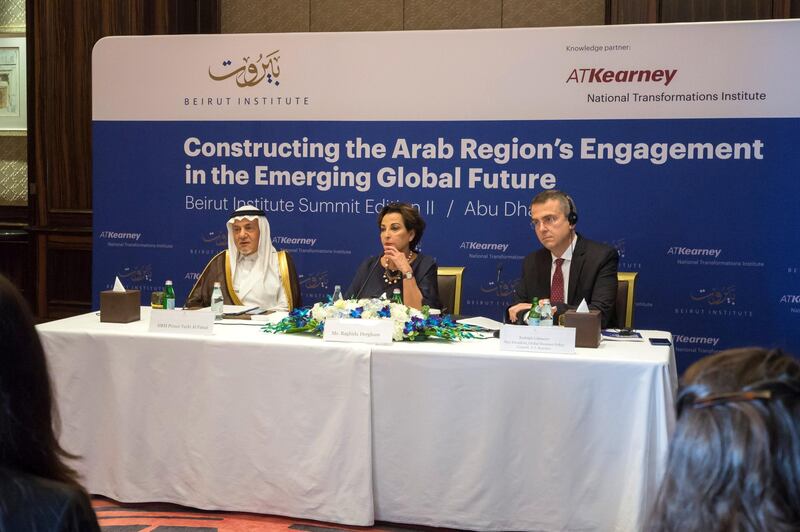Arab states must begin to co-operate closely if they want to overcome challenges facing the region and to counter extremism, experts say.
Prince Turki Al Faisal, the former Saudi ambassador to Washington and London, said Arab leaders must align and share interests to neutralise conflict and instability.
“Driving great power alignment around shared interests and neutralising conflict through coalition-based action are essential if we want to establish strategic foundations for regional stability," Prince Turki said at said at a press conference for the Beirut Institute Summit.
Prince Turki is a board member and supporter of the summit, which draws upon recommendations of its participants to put forth policy ideas for the Middle East.
____________
Read more:
Turki Al Faisal: Saudi Arabia had an obligation to intervene in Yemen
UAE with Saudi through thick and thin, says Sheikh Mohammed bin Rashid
The Arab world has a pivotal role to play in an emerging global future
____________
“Fighting terror and extremism has urged the Arab world to co-operate closely on countering these issues, and in my view one leads to the other,” he said.
Raghida Dergham, founder of Beirut Institute and columnist, said tolerance in the region can be achieved only “if the region’s leaders promote and embrace the values of inclusion”.
Following its second-edition summit in Abu Dhabi, titled Constructing the Arab Region's Engagement in the Emerging Global Future, the Beirut Institute launched a policy road map that contains five fundamental strategies that leaders of the region can follow.
“The recommendations of this report will help to overcome the challenges of instability and insecurity in the region,” Prince Turki said.
He said Arab states must work together “to help failed or insecure states to overcome their challenges” which in turn will lead to eradicating extremism.
The policy also addressed the role of women in society in countering violent extremism, stressing that future leaders must systematically empower women.
"Women have a special role in standing up to extremism at home and in society," Ms Dergham said. Education is the way forward in countering these challenges, she said.






